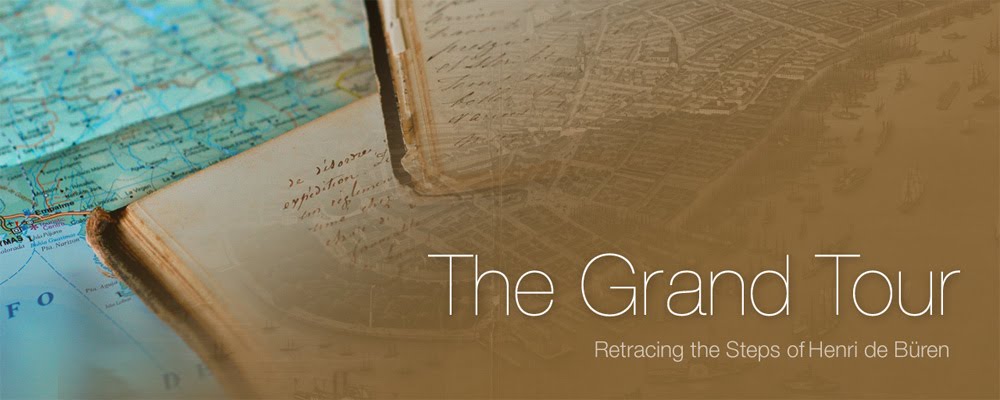
From the very beginning of this project, I have wondered what music Henri de Büren listened to while he traveled and what music he missed from home.
I am breaking up my findings into European music he may have taken with him – had the iPod existed – and in a second post I will try and find examples of music he may have heard while traveling through the U.S., Canada, Cuba, Mexico, Panama, Peru and Brazil.
Early Romantic Music (1800-1850).
My assumption for this exercise is that he would have been taken with him music from early romantic artists.
From Academic Dictionaries and Encyclopedias.
"Romanticism does not necessarily apply to romantic love, but that theme was prevalent in many works composed during this time period. More appropriately, romanticism describes the expansion of formal structures within a composition, making the pieces more passionate and expressive. Because of the expansion of form (those elements pertaining to form, key, instrumentation and the likes) within a typical composition, it became easier to identify an artist based on the work. For example, Beethoven favored a smooth transition from the 3rd to 4th movement in his symphonies, and thus his pieces are more distinguishable. Overall, composers during this time expanded on formal ideas in a new and exciting way.
The era of Romantic music is defined in this article as the period of European classical music that runs roughly from the end of the Napoleonic Wars to around the end of the 19th century, as well as music written according to the norms and styles of that period. The Romantic period was preceded by the classical period, and was followed by the modernist period.
Romantic music is related to romanticism in literature, visual arts, and philosophy, though the conventional time periods used in musicology are very different from their counterparts in the other arts, which define "romantic" as running from the 1780s to the 1840s. The Romantic movement held that not all truth could be deduced from axioms, that there were inescapable realities in the world which could only be reached through emotion, feeling and intuition. Romantic music struggled to increase emotional expression and power to describe these deeper truths, while preserving or even extending the formal structures from the classical period."
The Music
I have chosen a couple of pieces that Henri probably heard.
1. Frédéric Chopin – Nocturne in C# minor
2. Felix Mendelssohn – Violin Concerto No. 2 in E minor, Op. 64: Andante
3. Hector Berlioz – Ballet des sylphes
4. Niccolò Paganini – Cantabile
5. Franz Liszt – Hungarian Rhapsody No. 2

No comments:
Post a Comment